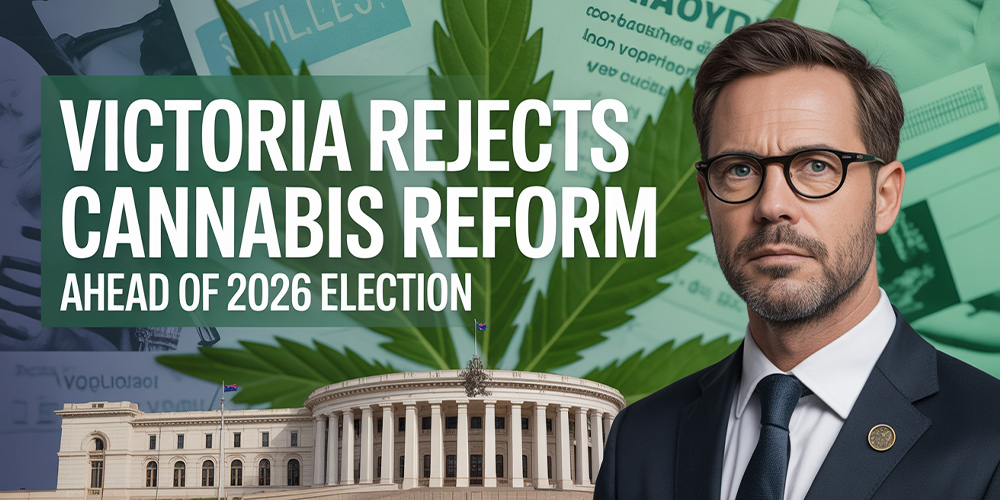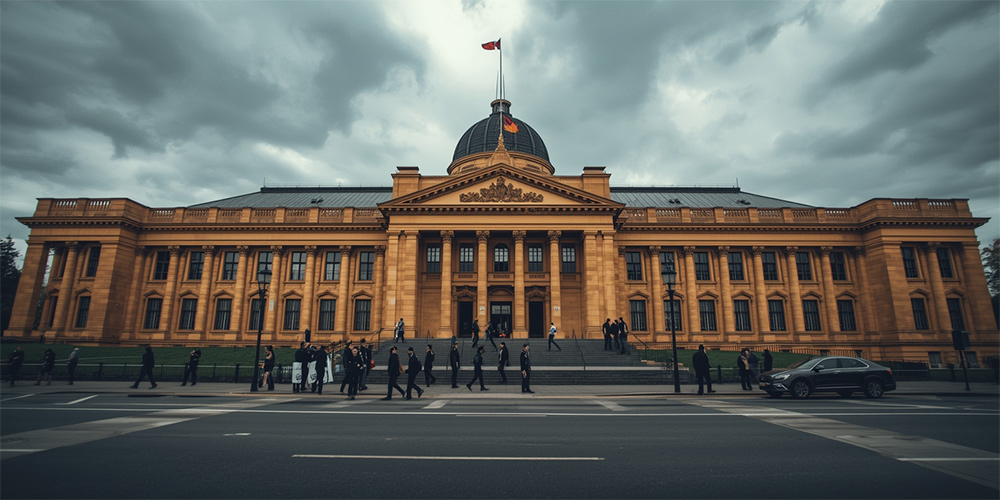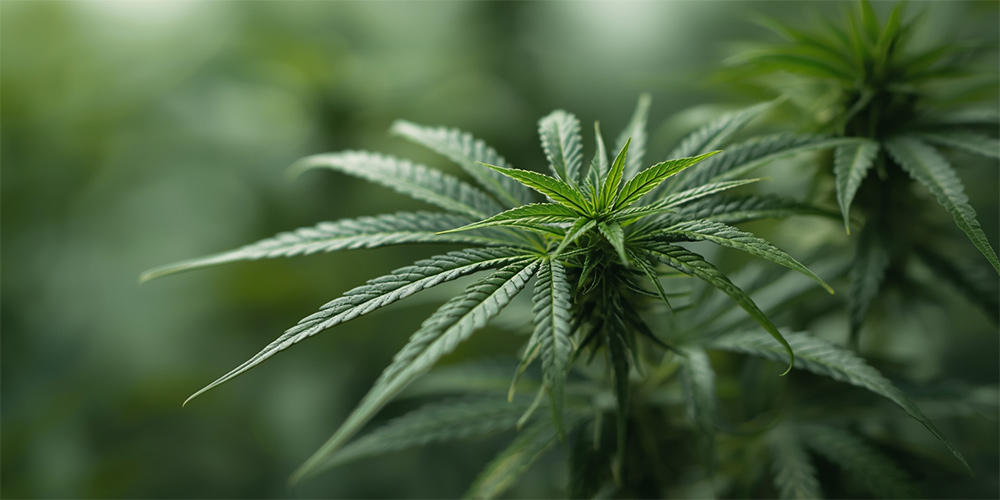
Home » Allan Government Rejects Cannabis Reform Ahead of 2026 Election: Political Calculations Over Public Support
Allan Government Rejects Cannabis Reform Ahead of 2026 Election: Political Calculations Over Public Support
The Victorian government has officially rejected all recommendations from the state’s inquiry into the legalisation and regulation of cannabis, marking a significant setback for reform advocates and signaling that Premier Jacinta Allan’s administration is prioritizing electoral caution over progressive drug policy.
The decision, revealed this week, comes just 12 months before Victoria’s 2026 state election—an event already shaping up to center on issues of law, order, and social policy. Despite growing public support for cannabis reform and a national push for decriminalisation, the Allan Government has made clear it will not move toward legal recreational cannabis use or broader possession reforms in this term.
Government Shuts Down Reform Recommendations
The Victorian Parliament’s Legal and Social Issues Committee released its comprehensive report earlier this year, recommending a model for the regulated legalisation of adult cannabis use. Among its key proposals were:
- Allowing adults to possess small amounts of cannabis for personal use
- Establishing licensed cannabis retail outlets under a regulated framework
- Creating pathways for expunging minor cannabis convictions
- Introducing education and harm-reduction campaigns
Despite the evidence presented—showing that prohibition has failed to curb cannabis use or reduce harm—the Allan Government has rejected every recommendation.
A spokesperson for Premier Jacinta Allan stated that the government “does not support legalising or decriminalising cannabis for recreational use at this time,” emphasizing that Victoria would continue to prioritize community safety and health-based interventions over full-scale reform.
This stance mirrors similar caution taken by previous state governments, including Daniel Andrews’ Labor administration, which also resisted calls for legalization during its tenure.

Political Timing and Electoral Caution
Political analysts widely view the decision as a calculated move to avoid controversy before the 2026 election. With opposition parties and conservative media outlets frequently linking cannabis reform to crime and public safety concerns, the government appears intent on neutralizing potential attack lines from its political rivals.
Dr. Sarah Jeffries, a Melbourne-based political sociologist, told The Age that the decision “reflects classic pre-election positioning.”
“The Allan Government is signaling to centrist voters that it’s not about to embrace social experiments or perceived risks in the lead-up to the polls. It’s a defensive strategy rather than a policy judgment.”
Yet, this political caution contrasts sharply with shifting public opinion. National surveys conducted in 2025 by the Australian Institute of Health and Welfare show that nearly 59% of Australians now support legalizing cannabis for personal use, up from 43% just five years ago.
Advocates argue that the government is ignoring this growing consensus and missing an opportunity to modernize outdated laws that criminalize ordinary Victorians for minor offenses.
Reform Advocates Call Out “Political Hypocrisy”
The Legalise Cannabis Victoria Party has condemned the government’s response as “cowardly” and “deeply out of touch” with the public.
Party MP Rachel Payne said the government’s rejection “flies in the face of evidence, public sentiment, and the real human cost of continued criminalization.”
“Victoria Police made over 4,000 cannabis-related arrests last year—mostly for possession. That’s thousands of people funneled into the criminal justice system for something that is legal or decriminalized in most comparable countries,” Payne said.
Payne also accused the government of hypocrisy, noting that several senior politicians, including some within Labor, have openly admitted to past cannabis use without consequence.
“Politicians can admit they’ve used cannabis and still govern, but ordinary people face fines, court dates, and stigma for doing the same thing,” she added.

Cannabis Law in Australia: Patchwork and Pressure
While cannabis remains illegal for recreational use nationwide, several Australian jurisdictions have taken steps toward reform.
- Australian Capital Territory (ACT): Decriminalized personal possession and home cultivation for adults in 2020.
- New South Wales: A recent parliamentary inquiry labeled decriminalisation “inevitable” due to overwhelming evidence that criminal penalties are ineffective.
- Western Australia: Currently reviewing its own cannabis enforcement policies under growing public pressure.
Victoria’s decision to stand still effectively isolates the state in a national context moving—slowly but steadily—toward reform.
Legal experts say the failure to act could lead to inconsistencies between state and federal enforcement and hamper the development of a unified national approach.
Economic and Social Dimensions
Beyond civil liberties and policing, cannabis reform carries significant economic potential.
A 2025 Deloitte Access Economics report estimated that a regulated cannabis market in Victoria could generate more than AUD $1.5 billion annually in tax revenue and create over 10,000 new jobs in cultivation, retail, and compliance.
In contrast, the state continues to spend millions on enforcement and prosecution. According to Victoria Police data, cannabis-related offenses account for nearly 35% of all drug arrests, with possession charges dominating court dockets.
Reform proponents argue that redirecting these resources into public health and education would produce better outcomes and free up law enforcement capacity for more serious crimes.
Medical Cannabis Contrast: Growth but Controversy
Ironically, Victoria remains a leader in medical cannabis access, with thousands of patients legally prescribed cannabis for pain management, anxiety, and other chronic conditions. However, recent national debates—spurred by revelations that a handful of doctors issued tens of thousands of cannabis prescriptions—have sparked questions about oversight and regulation.
This dual reality—where medical cannabis is normalized while recreational use remains criminalized—has amplified public confusion and fueled calls for policy coherence.

The Road Ahead: Reform Deferred, Not Dead
While the Allan Government’s rejection represents a clear short-term defeat for legalization advocates, experts suggest the issue is unlikely to disappear.
Demographic and cultural trends indicate that younger voters, urban residents, and medical cannabis users overwhelmingly support reform. Should public sentiment continue to rise—and other states move ahead—Victoria may be forced to revisit the issue post-2026.
There is also growing speculation that federal leadership, particularly under the Legalising Cannabis Bill framework, could eventually override state hesitancy and introduce a coordinated national model.
Expert Outlook: A Policy Out of Step with Its Time
Policy analysts argue that Victoria’s approach now risks appearing outdated both domestically and globally.
Australia’s major trading partners—including Canada, Germany, and parts of the United States—have already implemented regulated cannabis markets that generate tax revenue and reduce criminal justice burdens without notable spikes in youth use or addiction rates.
Dr. Robert Lane, an international drug policy researcher, notes:
“Victoria’s resistance stands on shaky ground. The evidence overwhelmingly supports regulation over prohibition. The longer governments delay, the more they appear reactive rather than strategic.”

